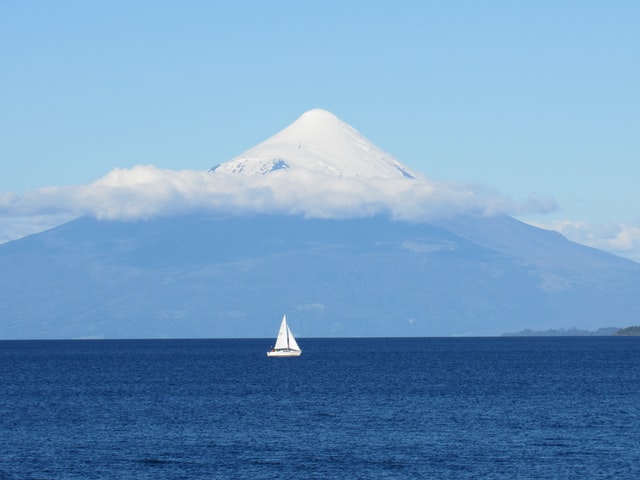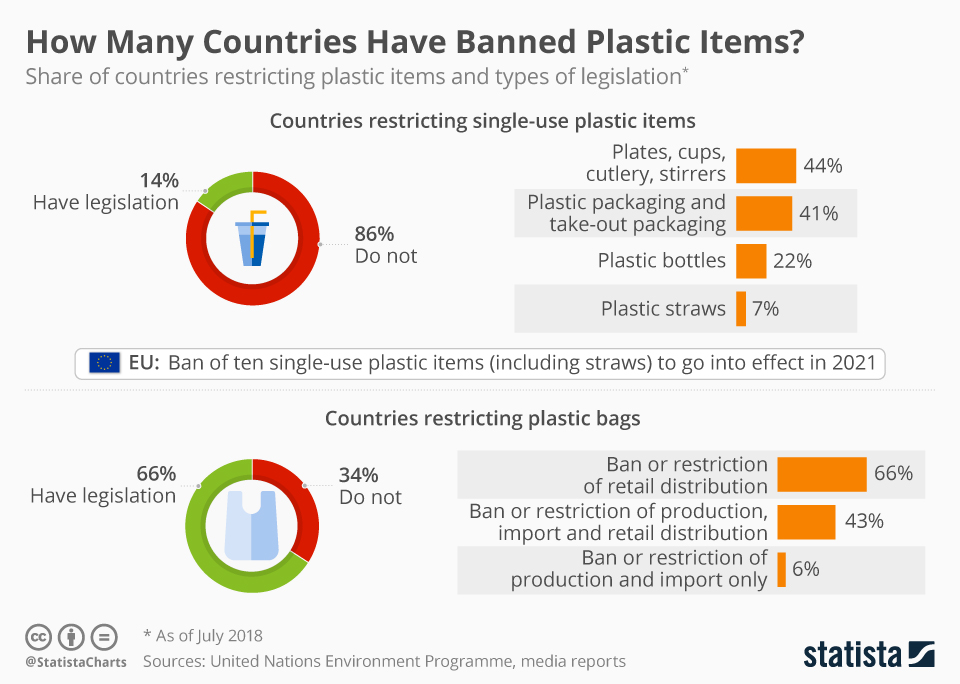
- Sustainable Planet -
- 5mins -
- 275 views
Chile Unanimously Approves Ambitious Single-Use Plastics Law
In what’s being described as a milestone in the care and protection of Chile’s environment, lawmakers pass legislation that will reduce the country’s plastic waste by more than 23,000 tons a year.
Chile Approves bold Single-Use Plastics Law
In a a bold and historic move, Chile’s legislature has unanimously passed a plastic regulation law that advocates say will reduce the country’s plastic waste by more than 23,000 tons every year. The new law will target single-use plastics in the food industry and introduce a certification for compostable plastics, among other things

Targeted items include a range of takeaway containers, utensils and accoutrements
The new law was developed with the help of nonprofits Oceana Chile and Plastic Oceans Chile. In 2019, the two groups presented a report to Chile’s legislature detailing both the problem of plastic pollution and existing government bans. This report formed the basis for a bill that was introduced in May of the same year.
"After more than two years of hard work, we can celebrate a great victory for the environment, for Chile, and the entire world," Mark Minneboo, regional director of Latin America for Plastic Oceans International, said in a press release emailed to EcoWatch.
"This law is ambitious, but at the same time it’s realistic for where Chile stands regarding waste generation and its technical capabilities to make these changes possible."
The bill seeks to reduce single-use plastic pollution by banning hard-to-recycle items from being served in restaurants or through delivery services. Targeted items include plastic plates, cups, straws, cutlery, to-go food containers, sachets, lids and stirrers.
At the same time, the law promotes the use of recyclable materials by creating a certificate program to distinguish truly compostable plastics and mandating that plastics earning this certificate be clearly labeled.
The new law also requires beverage companies to educate customers about the importance of reusable bottles and mandates that any establishment selling drinks must offer reusable alternatives to single-use plastic bottles.
Source: EcoWatch

It’s hoped other countries will learn from Chile’s example
The ultimate goal of the bill, its champions say, is to transition Chile towards a circular economy that generates less polluting waste.
"We can conclude that this law will change a paradigm, leaving behind a disposable culture by recovering what is reusable," Oceana Chile legal director Javiera Calisto said in a statement emailed to EcoWatch.
The bill now has to be signed by Chile’s president and be presented as a public notice, but organisers say this is just a formality. The ban on single-use styrofoam containers and smaller plastic items will go into effect within six months, while the entire program will be implemented within three years.
In a statement emailed to EcoWatch, Minneboo said the bill would reduce the types of plastic that wash up on beaches around the world, and he hoped other countries would learn from Chile’s example.
"As Plastic Oceans Chile we celebrate this big step towards cleaner oceans, and hope many other countries will follow," he said.
Source: EcoWatch

How Many Countries Have Banned Plastic Items?
According to a report by the U.N., only 14% of countries in the world have banned or restricted single-use plastic items so far. Most often, the use of plates, cups, cutlery and stirrers has been restricted, followed by restrictions on plastic packaging and take-out packaging. Only two countries, Vanuatu and the Seychelles, have so far banned plastic straws outright.
The list of countries banning single-use plastic items will grow longer in 2021 when an EU law will go into effect, banning plastic straws, cotton swabs, stirrers, cutlery and balloon sticks, among others. Many other countries and U.S. states and cities are also working on similar legislation.
Restrictions on plastic bags on the other hand have become quite commonplace around the world, with 66% of countries restricting at least some aspect of their import, manufacture or distribution.
Source: Statista

Which Countries Have Bottle Deposit Systems?
Germany has been using a highly successful bottle deposit system since 2003 to help cut down on plastic waste and increase recycling rates. A line of people in front of a deposit machine in a supermarket is perfectly normal with customers inserting their glass bottles, plastic bottles or beer crates before a receipt is printed, allowing them to recoup their money at the checkout.
Currently, every glass bottle carries an eight cent charge while plastic ones are 25 cents. While the scheme has had the side effect of pushing disadvantaged members of society to root through rubbish bins in an attempt to find bottles to gain a deposit, it has proven successful and many countries are seeking to emulate it.
As of 2020, approximately 40 countries around the globe have introduced a bottle deposit system including Iceland, Ecuador, the Netherlands, Croatia and all of Scandinavia. In the United States, it has been introduced in 10 states – California, Connecticut, Hawaii, Iowa, Maine, Massachusetts, Michigan, New York, Oregon and Vermont (as well as Guam).
It is also up and running across much of Canada. That’s according to a report from the Changing Markets Foundation which also states that eight countries have introduced legislation to bring in bottle deposit systems in the near future. The research also states that nine countries are currently conducting discussions exploring whether such a scheme would be feasible within their borders.
Source: Statista

